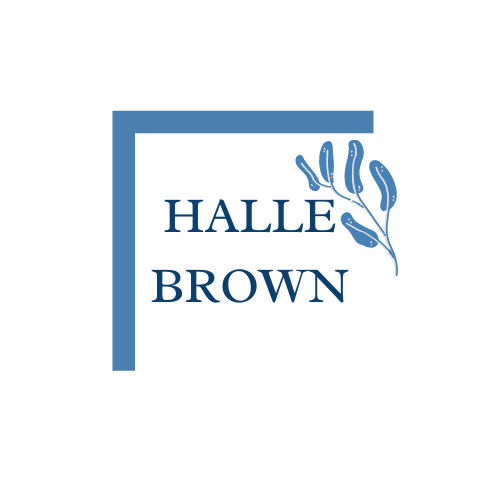I read Brene Brown’s Atlas of the Heart the first week of 2022. I’m a huge fan of Brene’s work; I regularly listen to her podcasts and I’ve read three of her books.
Atlas was unlike any of her other work. A cross between an encyclopedia and an atlas, Brene maps emotions across the coffee-table-worthy reference book. It’s actually sitting on my coffee table now because the cover is so beautiful.
Atlas works through 87 different emotions and experiences. The last sentence of the forward acts as Brene’s thesis: “To form meaningful connections with others, we must first connect with ourselves, but to do either, we must first establish a common understanding of the language of emotion and human experience”
It was a book that I needed to read.
I don’t think I’m completely lacking emotional intelligence, but while I read Atlas I realized I misidentify emotions a lot. Also, I’m incredibly uncomfortable with feeling negative emotions. I tend to suppress them until I explode.
Learning to identify my emotions has helped me understand my interactions with others. I can understand why certain things make me feel resentful or angry or sad or stressed or overwhelmed. I understand when I’m curious or bored or have awe or wonder.
I learned so much in Atlas, and I continue to learn as I read and reread the 87 different emotions Brene defines and discusses.
I broke down 3 different emotions from the first three sections of the book, just to give a taste for the work I’m doing after reading Atlas.
Here are the first few I’m working on:
Stress vs Overwhelm
So, I have a tendency to confuse stress and overwhelm. I see them as the same thing. If I get stressed, I assume it’s because I’m overwhelmed. Atlas made me rethink.
- Stress is an emotional reaction “tied to our cognitive assessment of whether we can cope or not”
- Overwhelmed is “an extreme level of stress, an emotional and/or cognitive intensity to the point of feeling unable to function
Brene gives her example of stress and overwhelm by telling her restaurant experience: the lunch and dinner rush. I related to her. When I worked at Chick-fil-a, someone’s sole job was to make drinks for the drive-thru. As people ordered drinks, the drink order pops up on a screen. Well, there was more than one day that Chick-fil-a got a little busy and drinks started popping up faster than I could keep up.
And if you don’t make them fast enough, they start turning red. The line slows down. Customers and coworkers get mad. I get stressed.
My heart is racing, I’m working fast to keep the line moving, but I’m ok, my stress is manageable.
Then, someone orders 4 milkshakes.
My heart stops. Vision starts to blur. The red is everywhere. And, my body stops moving.
Overwhelm is an emotional reaction, but it is a very physical response. For me, I can completely stop moving when I’m overwhelmed– my brain moves so fast it just empties itself. Luckily, someone always helped me finish the drinks, but when Brene described overwhelm, it took me straight back to high school.
Reading Atlas helped me understand both stress and overwhelm are emotional reactions. She challenged me to stop when I’m on the verge of overwhelm or try to stop before you get there.
Resentment as a Subset of Envy
Brene’s example of resentment really called me out.
“I’m not mad because you’re resting. I’m mad because I’m so bone-tired and I want to rest. But, unlike you, I’m going to pretend I don’t need to rest”
Essentially, she shifts the narrative of resentment. It’s not about the other person. It’s about you.
Funnily enough, the day before I wrote this section on resentment/envy, I was on the phone with my boyfriend Mitch and he was eating a fast-food bag of burgers.
He said that he hadn’t gone to the store so he was eating a bag of burgers. For some reason, I got internally upset. I started raging on his bag of burgers a little bit.
As soon as I put the phone down, I noticed how hungry I was. How empty my fridge is. I realized my plan for the night was to make a cup of rice and open a can of tuna. I resented the fact that Mitch chose to eat something filling and delicious and I was choosing to eat rice and tuna.
After a quick flip through Atlas, I immediately texted him and explained why I had gotten so snippy. I was feeling resentment. I recognized I was making a choice to scrounge around my kitchen, but I really wanted a bag of burgers (maybe not a bag of burgers- still seems gross- I settled for a pizza).
Boredom
Boredom hit a lot when I was a kid. I remember not knowing what to do with myself. I would create imagination games, run around, play outside, go to my friend Kali’s house down the street. I wrote songs, learned guitar on YouTube, read books, and so much more to satisfy my boredom. I used to think boredom was bad, but now I think we’re not bored enough. I think we channel boredom into something really creative and different.
Brene says “boredom is the uncomfortable state of wanting to engage in satisfying activity, but being unable to do so.”
Boredom calls us to action, but we stifle our boredom. We scroll, we work extra hours, we turn on the TV. But, it’s good to let our minds wander: it inspires creativity.
Brene’s notes on boredom inspired me to let my mind just rest and be bored. It’s uncomfortable, but boredom can be the start of expanding our mind, our creative space, and doing really good, meaningful work.
It goes on and on
The book explores belonging, fitting in, wonder, anger, love, all the way up to 87 emotions and experiences.
Also, if you’re not a reader, I found some podcasts to help you explore human emotions. Plus, it’ll convince you to buy Atlas (at the very least for your coffee table.)
How to Identify Negative Emotions with The Happiness Lab
Atlas of the Heart book club on Unlocking Us
It’s a challenging book
Brene asks you to question what emotions you feel and act on. After finishing Atlas, I started walking through my emotions. It’s helpful to recognize emotions so you can work your way through them; however, with recognizing emotions comes responsibility for your emotions and emotional reactions. I had to text Mitch to explain my resentment and apologize. I had to put my phone down and allow myself to be bored. It’s challenging stuff, and we aren’t taught how to do it.
I’d recommend this book to pretty much anyone. Honestly, I’d even argue that Atlas should be taught in schools. It’s that kind of book. It’s smart, challenging, and overwhelmingly useful.
Brene’s work never ceases to impress, and Atlas is no exception.


6 responses to “Mapping emotions: Thoughts on Atlas of the Heart”
Loved reading your review….just bought this book! Ready to dig in!
LikeLike
Oh yay, Lyn! You’ll have to let me know what you think. Very challenging, but excellent read!
LikeLike
Wow, Halle! I’m so impressed. Great review… Well written and thoughtful. Love all your examples and introspection. You are awesome.
LikeLike
Thank you for reading and the kind words, Sara!! So fun to see your comments!
LikeLike
[…] “Boredom is the uncomfortable state of wanting to engage in satisfying activity, but being unable to do so,” says Brene Brown in her novel Atlas of the Heart. […]
LikeLike
[…] goofy, likes to laugh, and have a good time. And also shows up when things are bad, when it’s time to cry, when I need […]
LikeLike